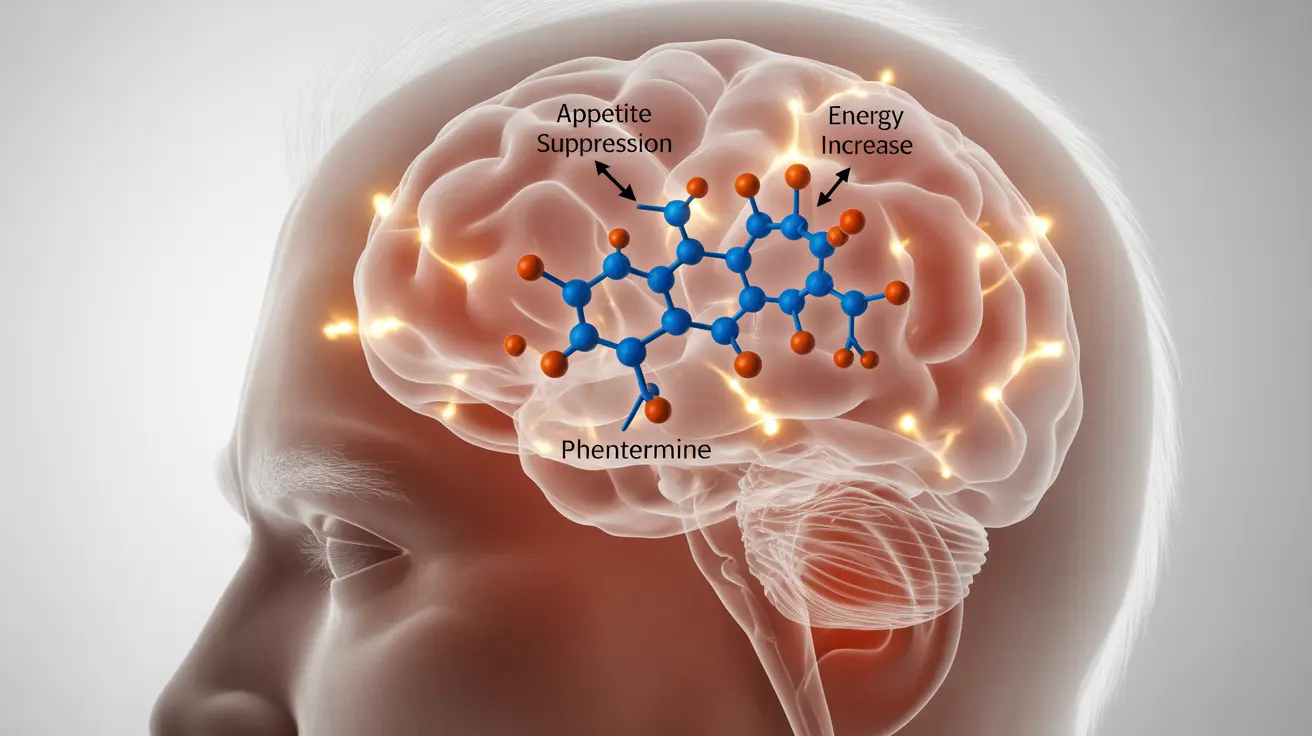Phentermine is a prescription medication widely used in medical weight management programs, helping individuals struggling with obesity achieve their weight loss goals. Understanding how phentermine works in the body is crucial for those considering this medication as part of their weight management journey.
This comprehensive guide explores the mechanisms of action, effectiveness, and important safety considerations of phentermine, providing you with essential information to make informed decisions about your weight loss options.
The Science Behind Phentermine's Weight Loss Effects
Phentermine functions primarily as an appetite suppressant by affecting specific neurotransmitters in the brain. It works by stimulating the release of norepinephrine and other neurotransmitters, which helps reduce hunger sensations and increase feelings of fullness.
The medication's impact on the central nervous system creates several key effects that contribute to weight loss:
- Decreased appetite and food cravings
- Increased energy levels
- Enhanced metabolic rate
- Reduced caloric intake
Effectiveness and Duration of Treatment
When combined with proper diet and exercise, phentermine can be an effective tool for weight loss. However, it's typically prescribed for short-term use, usually up to 12 weeks, to avoid potential dependency and minimize side effects.
The effectiveness of phentermine varies among individuals, with most patients experiencing significant results within the first few weeks of treatment when following their prescribed program correctly.
Managing Side Effects and Safety Considerations
Like all medications, phentermine can cause various side effects that users should be aware of. Common side effects include:
- Dry mouth
- Insomnia
- Increased heart rate
- Nervousness
- Constipation
Proper monitoring and communication with healthcare providers can help manage these side effects effectively. It's essential to report any unusual symptoms promptly.
Medication Interactions and Precautions
Phentermine can interact with various medications and supplements, making it crucial to disclose all current medications to your healthcare provider. Certain combinations can be dangerous, particularly with other weight loss medications or substances affecting serotonin levels.
Long-term Success and Lifestyle Changes
While phentermine can jumpstart weight loss, maintaining results requires sustainable lifestyle modifications, including:
- Regular physical activity
- Balanced nutrition
- Stress management
- Adequate sleep
- Behavioral modifications
Frequently Asked Questions
How does phentermine work to help with weight loss, and what are its primary effects on the body? Phentermine works by stimulating the release of neurotransmitters that suppress appetite and increase energy levels. It primarily affects the central nervous system, reducing hunger sensations and helping patients consume fewer calories naturally.
What are the common side effects of taking phentermine, and how can they be managed? Common side effects include dry mouth, insomnia, increased heart rate, nervousness, and constipation. These can often be managed through proper hydration, timing medication earlier in the day, and working closely with healthcare providers to adjust dosing if needed.
Can phentermine be used safely with other medications or supplements, or are there specific interactions to be aware of? Phentermine can interact dangerously with certain medications, particularly MAO inhibitors, SSRIs, and other weight loss medications. Always consult your healthcare provider about potential interactions with current medications or supplements.
How effective is phentermine for long-term weight loss, and what lifestyle changes are necessary to maintain results? Phentermine is most effective when combined with lifestyle modifications including regular exercise, healthy eating habits, and behavioral changes. Long-term success depends on maintaining these lifestyle changes after completing phentermine treatment.
What are the potential risks or complications of using phentermine, especially for individuals with pre-existing health conditions like hypertension or heart disease? Individuals with pre-existing conditions such as heart disease, hypertension, hyperthyroidism, or glaucoma should use extreme caution with phentermine. The medication can increase blood pressure and heart rate, potentially exacerbating these conditions. Regular medical monitoring is essential.




